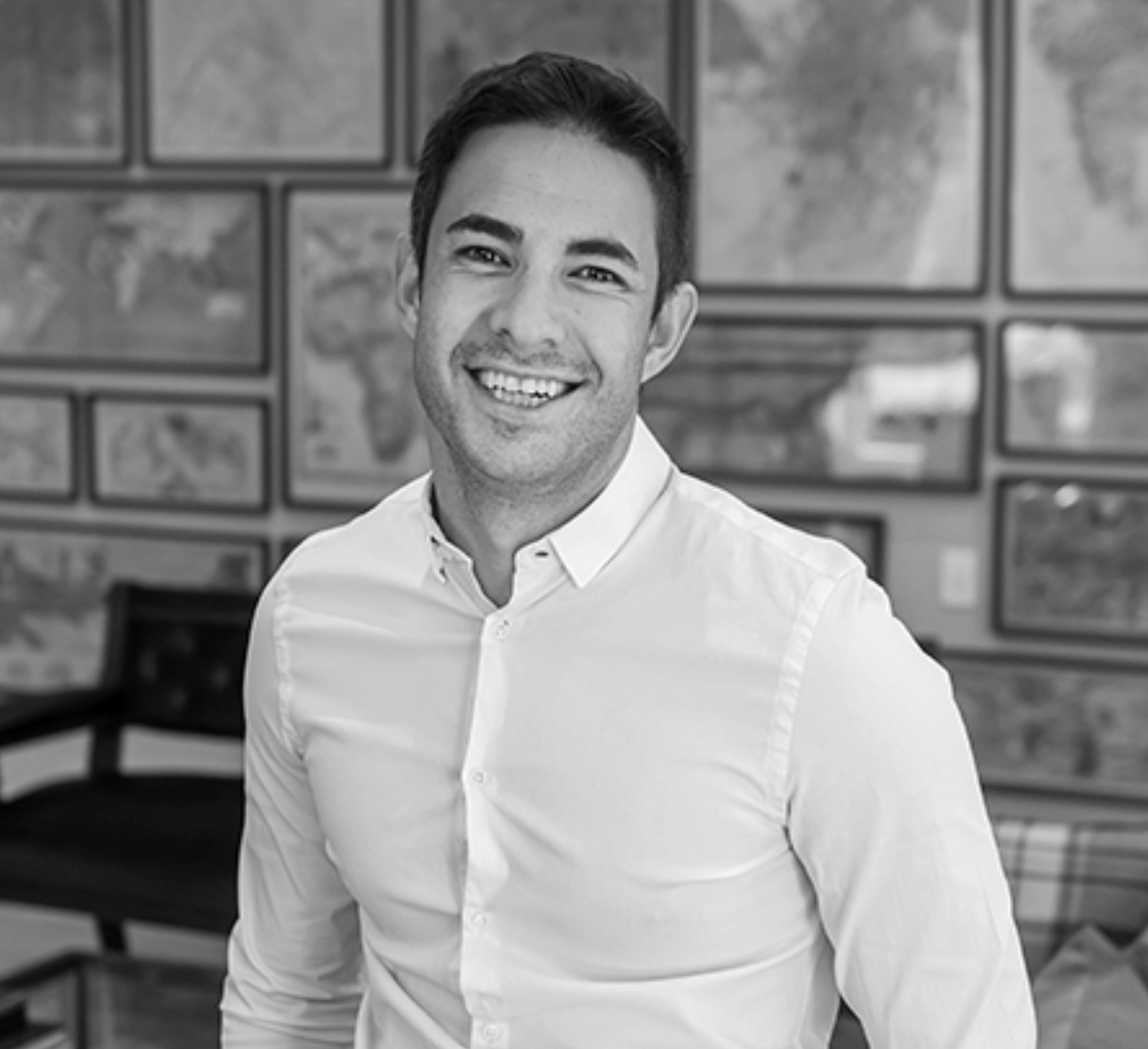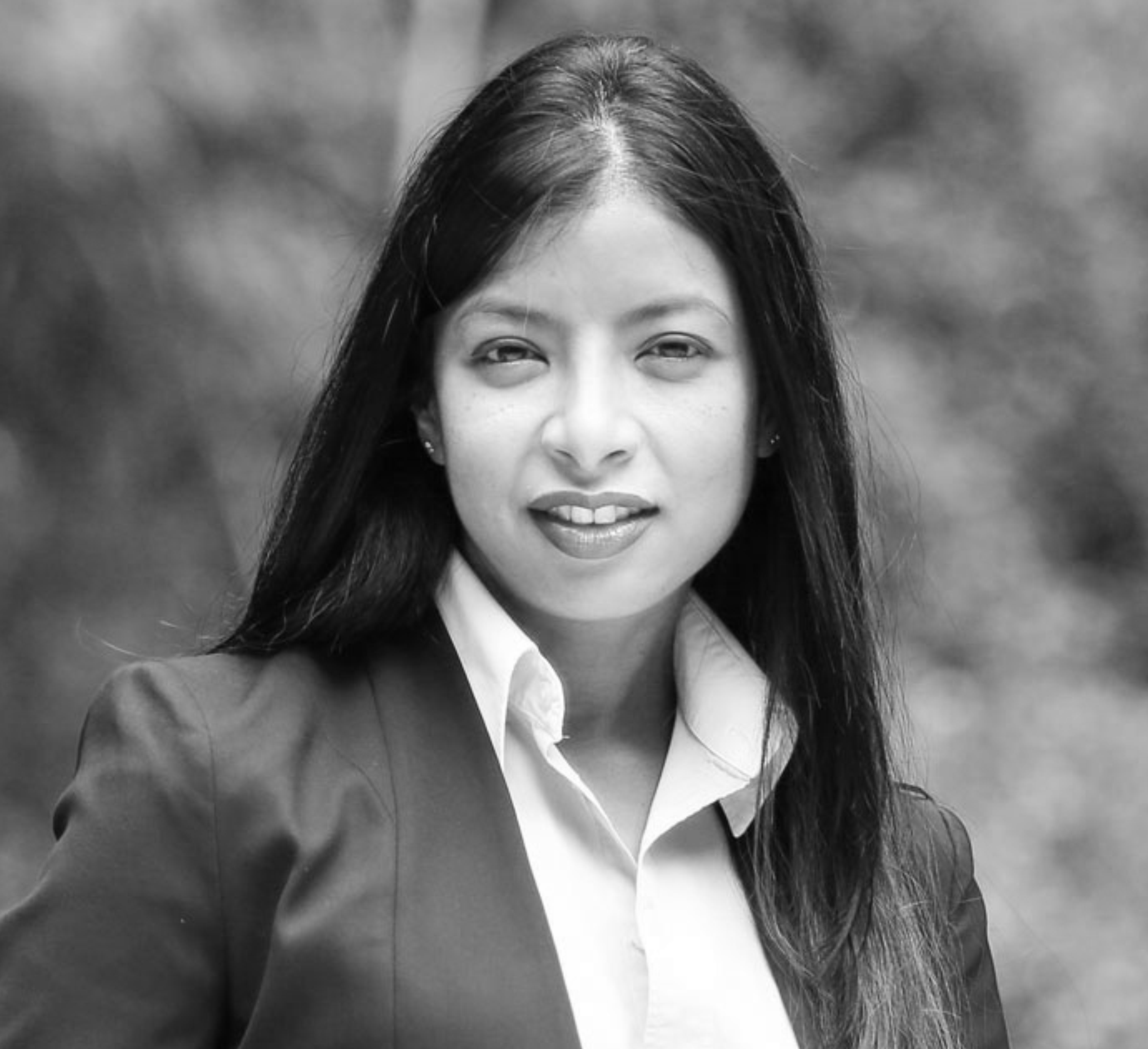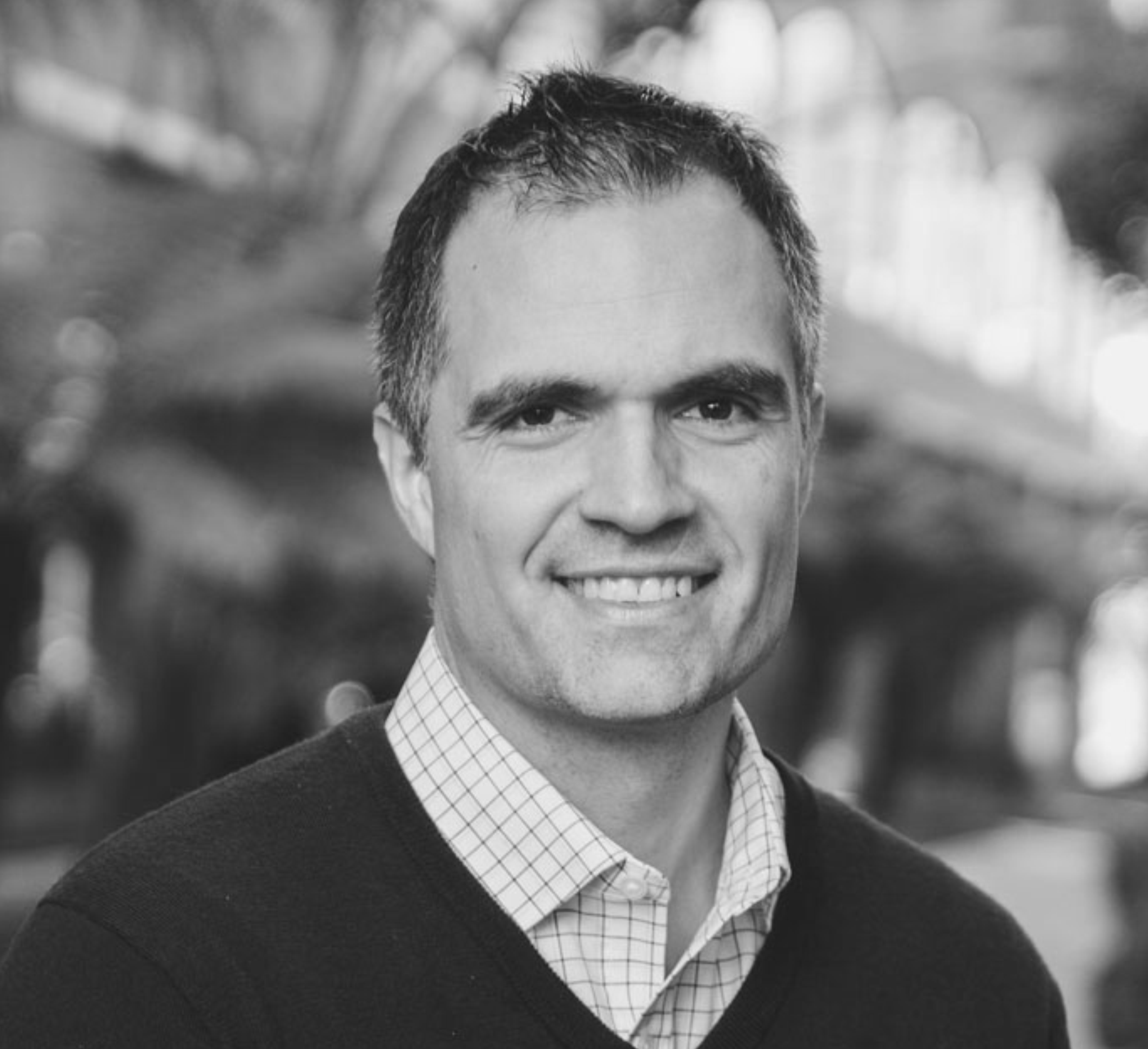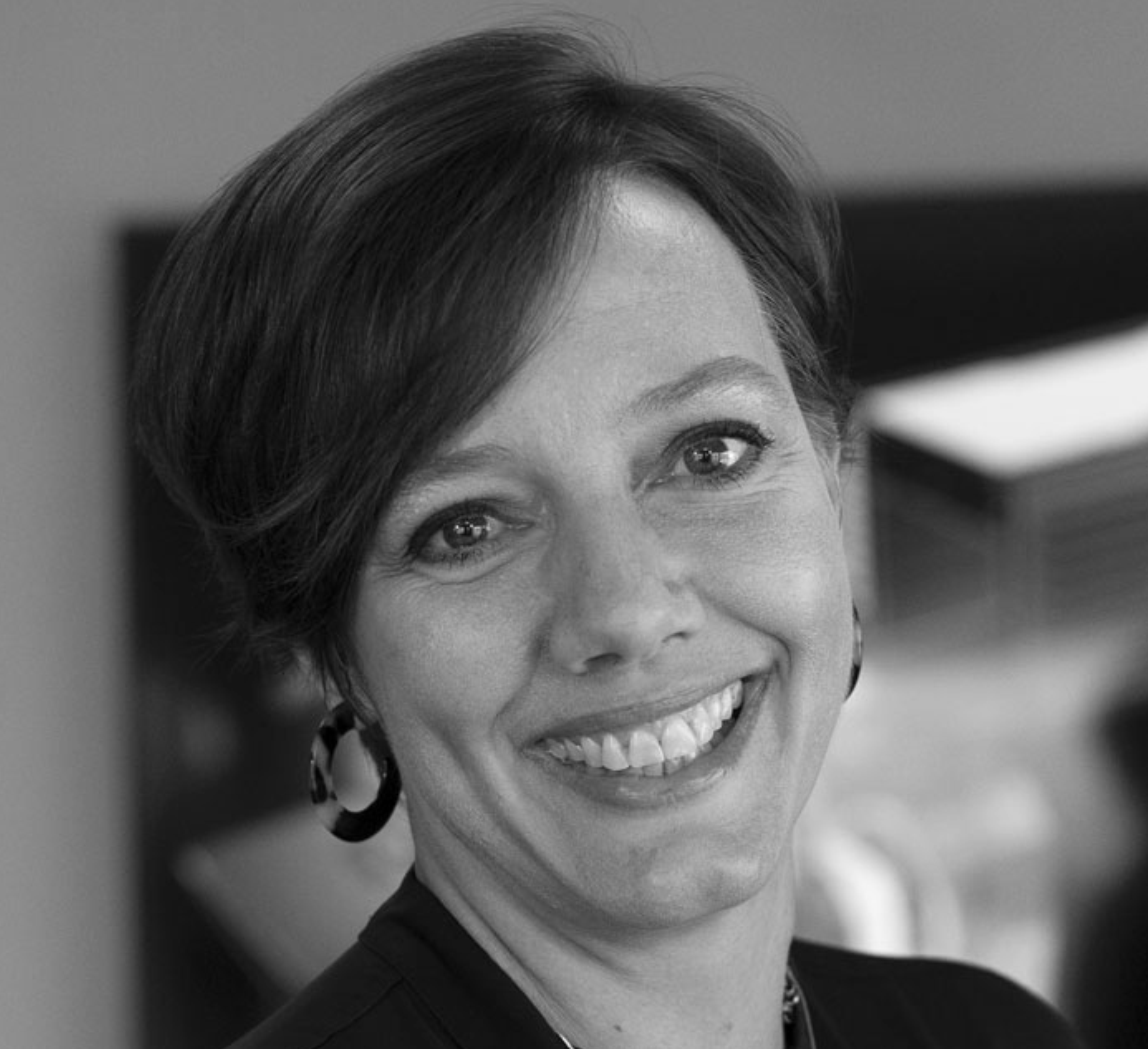103: Daniel Moritz
Finding Opportunities in the Chaos
Identifying a gap in the South African SME finance market, Merchant Capital provides working capital to retailers without collateral. CFO Daniel Moritz explains how this innovative financing model was introduced to South Africa.

CIARAN RYAN: Today’s podcast is sponsored by Draftworx, which provides automated drafting and working paper financial software to more than 8000 accounting and auditing firms and corporations. CFO Talks is a brand of the South African Institute of Business Accountants. Now, today, what a pleasure it is to welcome Daniel Moritz, who is Chief Financial Officer for Merchant Capital. Merchant Capital is an alternative provider of working capital designed specifically for SMEs in South Africa. It’s a fintech company, which is backed by some pretty heavyweight companies like Capricorn, Rand Merchant Bank and Standard Bank. What’s interesting about Merchant Capital is that it provides, sometimes in minutes, working capital for retailers without the need for collateral. This is something quite new in the South African lending landscape. Let’s find out a little bit more about this company and welcome Daniel Moritz. First of all, welcome Daniel, how are you?
DANIEL MORITZ: Hi Ciaran, thank you for having me today.
CIARAN RYAN: Now, just break down for us how Merchant Capital does things differently to other lending institutions and how it all started. I have come across Merchant Capital before, it’s got a very interesting proposition, but just break it down for people who don’t know what it does.
DANIEL MORITZ: Merchant Capital provides access to working capital and business funding for businesses across South Africa and the key differentiator of Merchant Capital to your traditional sources of finance are our three pillars that we focus on. The one is quick access, the second is customer experience and the third is technology. So when we talk about quick access, it’s all about access being the more important part of that, because SMEs have traditionally not had access to working capital or smaller businesses that have previously not been serviced by the banks. So what Merchant Capital was formed to assist with is within that niche of the market to provide these SMEs with access to finance when they need it most when growing their businesses. Also, not only give them that access but make that access quick, easy, and simple. A lot of the operators of businesses are doing everything, they’re the accountant, they’re the operator, they’re the marketing person, they don’t have time to go through the numerous applications. So what Merchant Capital does is we try and make it as simple and effortless as possible. We ask for as little documentation, we utilise technology to not only enhance the onboarding process that will enable as little paper as possible, but we’ll also use technology to look at different sources of data that will enable us to approve clients that would ordinarily not be approved. So we’ll be able to look at different data points and through our experience and our unique credit models, we’ll be able to provide access where other people would normally not be able to play. Then the other thing that is quite central to who we are is it’s all about customer experience. So service is something that SMEs or smaller SMEs have not always had access to. It’s something that’s normally been reserved for larger businesses or big corporates. So what Merchant Capital aims to do is to bring that high level service offering of putting the customer and dealing with their needs and assisting them with making complex decisions for their business, and our customer service executives are armed to make sure that their experience is as simple and pleasant as possible.
CIARAN RYAN: Retail is obviously having a hell of a time at the moment because of the lockdown. They talk about this K-shaped recovery, this is something that has come up a lot in months, where some businesses are doing very well, others are really battling. Those that are battling, of course, would include the hospitality and the restaurants, which is very much the market that you’re targeting. Give us a sense of how this segment of the economy is performing from your viewpoint.
DANIEL MORITZ: As you were saying, your analogy was actually quite spot on. We have seen across a broad spectrum some businesses have been able to thrive in this environment, but there have been a lot of businesses, particularly in the hospitality sector, that have really struggled. The biggest reason for the challenges that have been faced have been due to the obvious lockdown restrictions that have been required to try and curb the pandemic. It’s been very difficult for these businesses to operate because they’ve got limited hours, they haven’t been able to offer all of their products such as alcohol, and those are big revenue lines for these businesses. What we have seen though, which has been a positive thing, is that the South African SME retailers and business owners have in their usual way been very resilient and innovative. Although I don’t want to downplay how difficult and complex it is out there and people are really, really suffering, but there have been some pleasant surprises to see how businesses have evolved, how they’ve moved to delivery, how they’ve tried to make the best of an almost impossible situation to survive and move to thrive once we pass through this. So what we have seen is that our forecast when the first lockdown came about, we estimated a far worse repercussion for the lockdown. Whilst there were a lot of casualties, it was to a lesser extent than we estimated initially. What we did is offered payment holidays to our entire customer base. So we gave a three-month blanket payment holiday to all businesses that could not operate. How our payments work is they are a percentage of turnover, so because there was no turnover, there was no additional cost and there was no payment. We are still working with customers that even if their turnover has come back, their margins have been adjusted because of a different product mix that they’re forced to sell. So we’ve still got a percentage of our customer base that are still on payment restructures or payment holidays. We are strong believers that in order to get through this pandemic, everybody across the supply chain has to be soft and fair and help everybody within their particular chain to survive through this. So we’ve adopted an approach to work and collaborate with our clients and try and just get them through this, and then we can get past it together.
‘To date we’ve dispersed just over R2 billion to clients across the country.’
CIARAN RYAN: I guess that would also be reflected…you gave a three-month payment holiday. and I guess a lot of businesses are still struggling, so you’re having to sort of do a lot of negotiation, a lot of hand holding. But give us a sense from Merchant Capital’s point of view, the size of your lending book and percentage growth over the last year. Can we get a sense of how the business did during this lockdown period?
DANIEL MORITZ: Absolutely, to date we’ve dispersed just over R2 billion to clients across the country. What we’ve actually found during this tough pandemic is that our disbursements have actually increased over this period because we’ve been able to assist businesses in other spaces that were normally served by some of the larger institutions that have tightened up their credit and the need is still there. So we’ve diversified and we’ve now introduced a medical product that assists healthcare professionals with affordable working capital to help them fund and grow their practices. We’ve broadened our offering, whereas we were originally only providing finance within the retail sector, we are now financing all businesses, so any B2B funding that is required, we are now servicing. So those additional verticals are now actually growing our book and we’ve seen a growth of 25% year on year. We’ve tried to ascertain how can we find the opportunity in the chaos. There’s the old cliché that the banks will only give you money when you don’t need it. We didn’t want that to be applicable to us. So we’ve been very innovative and open-minded to try to, without disregarding the risk, being able to help good businesses that are temporarily in a tough spot at the moment.
CIARAN RYAN: Do you think the lending sector in South Africa will emerge from this lockdown crisis in any kind of reasonable shape? There has been obviously a big hit to the larger banks and their balance sheets, but it does seem that they’ve come through this or they’re about to come through this with some dignity. What do you think?
DANIEL MORITZ: No, absolutely, I have a huge respect for the South Africa banks, they are exceptionally well managed from a risk perspective, their liquidity is excellent and they’re an excellent institution. In the banking sector I think there will be a bit of bruising, but they’ll come through in their stride, as they have before through other global crises. I think that there will be a little bit of disruption in the space because there are new opportunities and new areas whereby there is increased demand where some of the traditional sources of funding do not cater for the needs of that demand. But overall, I do think that whilst there will definitely be a bit of pain taken, we will emerge in a reasonable and strong state.
CIARAN RYAN: Tell us a little bit about yourself and your background and where you grew up. You’re in Johannesburg, did you grow up here and how did you end up in Merchant Capital? Give us an idea of your career journey.
DANIEL MORITZ: Born and bred in Johannesburg. I studied accounting and after finishing my articles, I worked for the Transaction Capital Group, which specialises in innovative lending. I worked with some amazing people there and they built an incredible product mix for their client base. While I was at Transaction Capital my now partner, Dov Girnun, came across this product that he found in the UK and after a couple of coffees and discussions, he managed to convince me to leave and we started Merchant Capital. The big differentiator was the pay in line with turnover, so the ability for repayments to be based as a percentage of turnover was something that had never been offered before in South Africa, and it had been working very successfully in the US and the UK. So we’ve had that technology and we basically started it in Dov’s study and we built it up from there.
CIARAN RYAN: I’ve got to ask you what did David Hurwitz and Sean Doherty say when you left Transaction Capital?
DANIEL MORITZ: I was very close to Dave, I’ve got a huge respect for him, I learned a lot from him. I think he completely understood it was part of the next steps for me and for the next part of the journey. He’s been very supportive, and we still keep in touch.
CIARAN RYAN: Okay, good. Sorry to interrupt you, please continue, so that, that brought you across, you saw an opportunity, so you came from Transaction Capital. For people who don’t know, Transaction Capital is also an interesting company listed on the stock exchange and there are basically two legs to its business, one is financing and the whole infrastructure around taxis, and the other one is a debt recovery business. It’s been doing extremely well over the years. Anyway, continue with your story there.
DANIEL MORITZ: Once we started Merchant Capital, we started focusing on the retail space and over time we’ve invested quite heavily into our technology division, whereby for a number of different products on the business-to-business sector and we’ve been very fortunate in that we’ve attracted some fantastic partners and shareholders. As you explained earlier, we’ve got Capricorn, Rand Merchant Investment Holdings and Standard Bank as our shareholders. So they have helped us grow the business tremendously, and we’ve been able to disperse a large amount of money to a lot of SMEs and help these businesses grow, whereas they would ordinarily not have had that access to the capital.
‘The pay in line with your turnover has been a really well-received fantastic offering to SMEs.’
CIARAN RYAN: It’s a question that does come up, I’m going back now to the whole business model because the way that you recover your loan, these aren’t collateralised loans, as in you’ve got to put down your house as collateral or something like that. What you do is you recover it through taking a small percentage of turnover. So that gives you a lot of control over the recovery of the loan. So I imagine your bad debt experience is not bad. Your real big risk is that the business closes down altogether, but now why haven’t the big banks done something like this? Why is this something so new to the South African landscape?
DANIEL MORITZ: So the pay in line with your turnover has been a really well-received fantastic offering to SMEs. We work with Standard Bank and we offer our product through their merchant services division. So through Standard Bank there is access to such a product, which is part of why they are a shareholder of Merchant Capital. I think that they saw the opportunity to offer this much- needed product to their customer base, so it is available to a Standard Bank customer. Basically, from your question on the bad debts, you’re absolutely right. So what we do is we engage with our customers to ascertain what sort of percentage can they afford, linked to their industry, linked to their margin, because naturally in a high margin industry there would be more affordability for a higher percentage, whereas a lower margin industry, such as a fuel station, could only afford a smaller percentage. So we work with our customers and we engage with them because, arguably, they know more about their business than anyone else, and we tie that into our algorithms and we’ve negotiated a percentage that works for them. What we have found is because this percentage is not invasive at all and there’s no real burden of having a monthly instalment. So what we have found is that once customers take on this product, they land up readvancing over and over again because they’ve built that percentage into the margins and they now are able to plan their stock purchases or their expansionary plans around getting their recurring advance. So once a client is within our system and a percentage of their loan is repaid, they’re eligible to take out further funding without an application, which is a great value add.
CIARAN RYAN: So if you’re a Standard Bank customer, they see the benefit of this, but you go to Merchant Capital, you’re not going to do that direct with Standard Bank. So their business model remains more or less the same, they outsource that and maybe it’s a bit of a trial run. They’re seeing how it’s going with you and I’m sure they’re pretty impressed, particularly if you grew your book by 25% over the last year, which I find quite staggering, but maybe not that staggering in view of the difficulties we’ve just been talking about with restaurants and hospitality and so on.
DANIEL MORITZ: I think the growth has definitely come from two different areas. Number one, we’ve been able to help businesses that have been unable to find access to funding elsewhere in this environment, and number two, we’ve increased our customer base and our target market has been broadened dramatically to now include all B2B businesses, as well as retail businesses, as well as medical professionals. So those three product mix have become a real growth edge for Merchant Capital.
CIARAN RYAN: Let’s talk about the role of the CFO. I get the sense that this is something that… you’ve stepped up, you’re a CA by training, you’ve worked in a large stock exchange listed company, you’ve had exposure to some very, very bright minds, and now you’re running a smaller business, no doubt, but at the same time you are having to wear this hat of the CFO. How have you seen the role of the CFO evolving from your career path and your journey?
DANIEL MORITZ: I personally am an entrepreneur, that is what comes most naturally to me. So what I find is my role within Merchant has been very much customer focused, very much product focused, credit risk focused, whilst ensuring that the business grows and has a strong financial backbone. Generally speaking, from a CFO role in this environment, what I’m finding is as businesses have to adapt with such agility in this very fast paced, changing world, the role of the CFO is becoming more and more important and needs to be more and more agile. When I say that the sense is that historically a CFO would almost be limited to looking after to the financial reporting and the financial wellbeing, the liquidity, the balance sheet of the business. But now as the world is changing so fast, it’s so important that when new products are introduced or when new customers are targeted, that the CFO is volved in that product creation to ensure that these products are all financially profitable for the business, that they have the cash flows to take on these new risks and that a really successful product offering would be a collaboration between all aspects of your business, your marketing, your finance, your risk, and your leadership. I think it’s quite an exciting role to be in in these times because it’s so multifaceted. There’s enormous responsibility to ensure that the business is able to navigate this treacherous period and then at the same time to try and find the areas of growth and expansion during the chaos.
‘Every new product decision or new strategy is taken by our diverse team.’
CIARAN RYAN: When training as an accountant, you have the technical knowledge, they do teach that well in the universities and the academies and so on. I think it’s when you start progressing in your career, you have to understand the world of business, and you’ve got to understand how to interact with people, you’ve got to understand marketing and strategy, and all those other legs that come with operating in a very, very brutal sometimes or competitive business environment. The African Institute of Business Accountants some years ago launched this designation called CFO SA, which is really to acknowledge people for acquiring those skills that you’re not going to learn in a university, that you really have to acquire through experience and maybe getting beaten up a few times and making mistakes and that kind of thing. I want to ask you how much are you expected to apply, because you’re sitting at the right-hand side of the CEO and you’re expected to make some pretty high level input there. He’s not just going to say, hey, what profits did we make last month. He’s going to be asking you questions like what do you think, what’s the best strategy going forward, should we adopt some new verticals? You’re having input in all of these kinds of discussions, right?
DANIEL MORITZ: Absolutely, our entire leadership team works very closely together. Every new product decision or new strategy is taken by our diverse team. We’ve all got different skill sets and I think it’s very important that there’s a collaboration amongst your leadership teams of multiple opinions and pieces of experience to make sure that you create the right product and strategy for the business.
CIARAN RYAN: Okay, now, final question and it’s a question I ask everybody who comes on CFO Talks, what books are you reading or have been reading that really kind of gripped you?
DANIEL MORITZ: Trillion Dollar Coach: The Leadership Playbook of Silicon Valley’s Bill Campbell by Alan Eagle, Eric Schmidt, and Jonathan Rosenberg. It’s a really great book about Bill Campbell, who is a business coach in Silicon Valley and he [unclear] Steve Jobs, Larry Page and he was instrumental in the growth of enormous businesses such as Amazon, Google, and many others. It’s a great read and I would highly recommend that.
CIARAN RYAN: I’ve not heard of that one been recommended before. What was your takeaway from that, what really impressed you?
DANIEL MORITZ: It just shows how even the smartest people around benefit so much from mentorship and learning from other people. You would imagine that the likes of Google, as an example, didn’t necessarily need the coaching and mentorship, but how much he actually gained from this type of coaching and mentorship. It also gave you a little bit of insight into these different businesses and how they grew, and the people behind them, which was really great.
CIARAN RYAN: Fantastic, we’re going to leave it there. Thank you so much, Daniel, for coming on and sharing that. What an interesting story that is, your personal story and also that of Merchant Capital. It’s a name that I’ve had my attention on for a while since I first came across it and I said, wow, this is a company that’s going to go places, I really do believe that.
DANIEL MORITZ: Thank you very much.
CIARAN RYAN: It’s a fintech company, it’s in a very new and interesting space, it’s very innovative. You can sign up there for loans, it doesn’t take long, I think ten minutes, is that right, Daniel?
DANIEL MORITZ: Yes, the sign-up process can take ten minutes, sometimes even less if you’re a Standard Bank client.
CIARAN RYAN: Wow, that’s something that you’re not going to get, I can guarantee it, from the traditional banks. Daniel, I want to thank you very much, please stay in touch. Come back again and just tell us a little bit later in the year how things have been going on, I’d be very keen to catch up with you.
DANIEL MORITZ: That would be great, I’d very much like that, absolutely. Thank you for having me, it was really great chatting.
CIARAN RYAN: That’s Daniel Moritz, who is the CFO at Merchant Capital.





